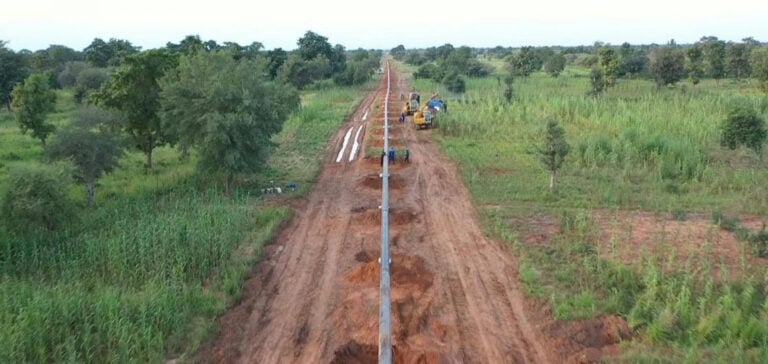The borders between Niger and Benin remain closed due to sanctions imposed by the Economic Community of West African States (ECOWAS) following the coup d’état on July 26. However, thanks to this pipeline, Niger will finally be able to export its oil to international markets via the port of Sèmè in Benin.
Economic impact and outlook
During the commissioning ceremony, Prime Minister Lamine Zeine emphasized that revenues from the exploitation of this natural resource will be exclusively dedicated to the sovereignty and development of the country, with equitable sharing among the population.
Several key figures from the region were present, including Bintou Camara, Mali’s Minister of Energy, and Simon Pierre Bossi, Burkina Faso’s Minister of Energy. These two neighboring countries, also led by military officers, kept their borders open as a sign of solidarity with Niger.
Niger’s oil production and reserves
The pipeline construction project, launched in 2019, was originally scheduled for completion in 2022, but the Covid-19 pandemic has caused delays, according to West African Oil Pipeline Company (Wapco), the project owner. A total of six billion dollars has been invested, including 4 billion for the development of oil fields in Agadem and 2.3 billion for the construction of the pipeline, according to the Nigerien government.
Future challenges for the Niger economy
These investments have considerably increased Niger’s oil production, which now stands at 110,000 barrels per day, of which 90,000 are destined for export. China National Petroleum Corporation (CNPC) is responsible for oil extraction. Niger’s reserves are officially estimated at around two billion barrels, and production is projected at 200,000 barrels a day in 2026.
By 2022, the Nigerian authorities have estimated that oil exports should make a significant contribution to the country’s economy, accounting for a quarter of GDP and around 50% of tax revenues. However, the World Bank fears that economic growth of 6% in 2023 could be reduced to 2.3% if international sanctions continue until the end of the year.
The commissioning of the giant oil pipeline between Niger and Benin marks a major turning point for the Niger economy. Hopes are high for oil’s contribution to the country’s growth and development, but international sanctions remain a source of uncertainty. The future of this West African nation now rests in part on this new export route for its oil resources.





















